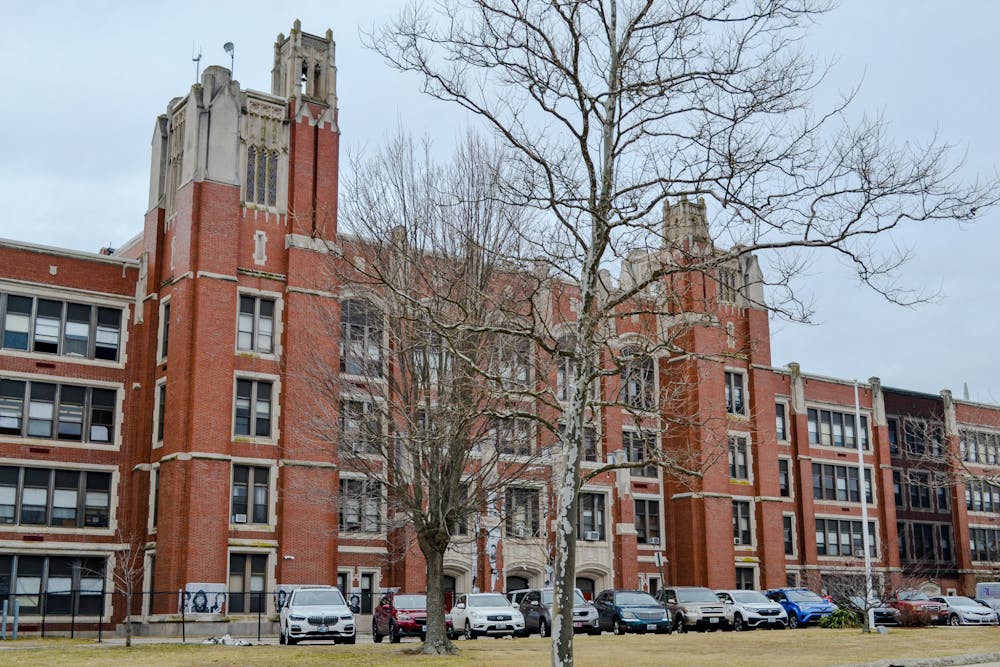In October 2021, the University announced plans to implement a college-readiness program in the Providence Public School District. The University expected to release “outlines” of the program by May 2022 and to bring in its first cohort in fall 2022, The Herald previously reported.
By last fall, the University shifted to recruit the program’s first students in fall 2023, wrote Marguerite Joutz ’15, chief of staff to President Christina Paxson P’19, in an October 2022 email to The Herald.
The planned program will aim to prepare PPSD students to obtain a degree at selective four-year institutions, with just under one-third of PPSD students currently entering four-year institutions directly after graduation, according to the Rhode Island Department of Education.
The University hopes the program will assist with college readiness by providing “participants with a holistic supportive experience that includes academic preparation, individualized college counseling and planning … and identity exploration,” Joutz wrote in a February 2023 email to The Herald.
Joutz added that the program’s mission is to “build, from the ground up, a new college access initiative that will have a transformative impact on the lives of the students who participate.”
Maribeth Calabro, president of the Providence Teachers Union, said she was frustrated with the program’s delay. “We’ve wasted a year and a couple of months now doing nothing,” Calabro told The Herald.
When Calabro first heard about the program in 2021, she was “thrilled.” But now she wants to “see action,” Calabro said.
“They've had over 12 months. There should be a plan in place and this should be starting to be implemented and we shouldn't be waiting to hear what's next,” she said.
In the October email, Joutz wrote that the University has conducted “more than 50 interviews and focus groups” with Providence high school students, educators, administrators, youth organizations and Brown community members throughout the program’s development.
Calabro said she is aware of “conversations happening that are occurring at the district level. But in terms of my colleagues, and folks that I work with at the PTU … (we) have not been privy to that conversation.”
Joutz said that the focus groups and interviews have included “PPSD educators and administrators,” but did not identify specific individuals involved in the conversations.
The University has also gathered “data on the college readiness and matriculation outcomes of students from Providence,” Jourtz said.
In the February email to the Herald, Joutz added that the University’s division of pre-college programs has now formed a search committee for the program director.
“The search committee has met with a number of candidates,” wrote Adrienne Marcus, the head of the committee and dean of pre-college and undergraduate programs, in an email to The Herald. “We hope to find an exceptional person to fill this critical role this spring.”
“I think that there are so many talented students at the Providence Public Schools that don't necessarily even know that they have the opportunity to go to Brown or any kind of Ivy,” said Nadia Heller ’24, a graduate from Classical High School.
Classical High School, a selective Providence public school, is ranked first among Rhode Island high schools. But even there Heller described a lack of resources.
Heller and her classmates didn’t have “very personal relationships with guidance counselors,” and did not have college application workshops, she said. Instead, students used class time to work on their applications — her English teacher set aside time every Friday for students to work on their Common Application essay.
“I hope (the program) works,” she said. “I went to school with … the brightest kids I've ever met in my whole life.”
“I hope that it’s an initiative (Brown takes) seriously,” Heller added. “I think (Brown) has a lot of responsibility to Providence Public Schools.”
In developing the program, the University expressed a commitment to “partnership with community members,” according to Joutz.
Calabro said that she hopes the University can create a “collaborative and comprehensive strategic plan to involve every school.”
In regards to the program’s year delay in implementation, “it's a lost opportunity for those people that we've missed over the past year,” Calabro said. “But it could be a new opportunity, if we can collaboratively come up with a plan and start implementing it in the immediacy.”

Owen Dahlkamp is the managing editor of newsroom on The Herald's 135th Editorial Board, overseeing the paper's news operations. Hailing from San Diego, CA, he is concentrating in Political Science and Cognitive Neuroscience with an interest in data analytics. In his free time, you can find him making spreadsheets at Coffee Exchange.





